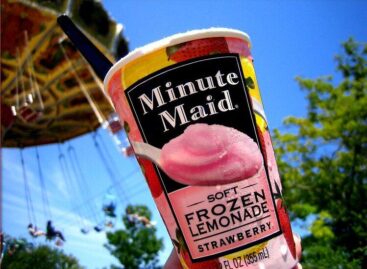Trade fairs: participation isn’t obligatory, but recommended
Experts say that the international trade fair market is booming again. In general we can say that demand is the biggest for special trade shows with a well-planned concept, events where exhibitors can reach the right target group are the most sought-after. In the last few years a concentration process occurred in the Hungarian trade exhibition market, and at the same time festivals gained ground. Successful international trade show brands started to organise the local versions of their event in other countries – informed Márton Szebeni, head of the Agricultural Marketing Centre’s (AMC) trade fair organisation group. Gabriella Szántó, communications director of HUNGEXPO Zrt. added that it has been more difficult for B2C trade shows to retain their market positions than for B2B trade fairs. HUNGEXPO decided to specialise and organised very successful events such as Budapest Boat Show, Budapest Motor Festival or FeHoVa.
According to Ábel Kuncz, international project manager of Mac-Line Hungary Kft., multi-sector trade fairs are less frequent and the focus is now on specialist events. These are more to-the-point as well: formerly several-day events were organised, now more programmes are crammed into shorter trade shows. Szilvia Máté, managing director of BD-Expo Kft. is of the opinion that it should be very important for Hungarian companies to be present at international trade fairs, where they can find new partners. In Italy companies are less and less interested in small trade exhibitions, in part because it has become easier to keep in touch with partners with the help of the internet. Zsuzsanna Kiss, market researcher of the Italian Institute for Foreign Trade told our magazine that the Budapest office organises trips to Italian trade fairs for Hungarian businesses every year. In cooperation with Hungexpo, they also popularise Hungarian trade shows in Italy, e.g. 11 Italian companies exhibited at SIRHA Budapest 2016 at a collective stand.
Tünde Simon-Lutring from the German-Hungarian Chamber of Commerce and Industry (DUIHK) pointed out that Fruit Logistica is a good example of the trend that every year Hungarian exhibitors use 8-10 percent more space at trade fairs organised in Berlin. Ilona Bótáné Csuka, a representative of the Verona trade shows informed us that these events are primarily frequented by trade visitors from Hungary – exhibitors rarely turn up. The majority of Hungarian companies don’t have the budget for setting up their own stand at prestigious trade fairs, so many of them are present at collective stands. A great advantage of this type of participation is that there is also a chance to conduct business negotiations scheduled by AMC in advance. Last year there were 26 Hungarian exhibitors at ANUGA and another 38 businesses were present with a collective stand. At this year’s SIAL Paris these numbers were 9 and 24, respectively – told Mr Szebeni.
In the last few years BD-Expo Kft., has been active in the Asian market as well, organising Hungarian presence at events such as Food&Hotel Asia and HOFEX. There is great interest in Hungarian products in the region – revealed Ms Máté. Mr Kuncz added that at the marketing department of many partners there is a person/team dealing with trade exhibitions only. DUIHK’s expert told that companies with a small budget for trade show presence should pay special attention to their stand design and to inviting partners to the stand in advance.
HUNGEXPO offers many free services to exhibitors, who can also choose from packs of services customised to their needs. BD-Expo Kft.’s director reckons that those exhibitors who go to a trade fair for the first time usually have the goal of mapping the market from a small budget. If this ‘test run’ is successful, they will spend more on their presence next time. Mac-Line Hungary Kft.’s experience is that companies are willing to spend on digital presence and presentation material. AMC’s view is that the main objective of their exhibitor partners is to establish new business relationships. They accept to pay extra money if they can see this goal achieved. However, for the base rate they are paying, they want all other participation goals met.
Exhibitors also need to make sure that visitors leave the stand with the feeling that they have had a special experience, e.g. an interesting conversation, a nice cup of coffee, etc. As regards organisation, partners want a comprehensive service. Companies would like to get all information and services from a single source, from stand rental to travel arrangements and accommodation. Ms Simon-Lutring told Trade magazin that they offer a 360-degree service to partners, and in addition to this, they also sell tickets at reduced prices and provide information on accompanying events. Ms Bótáné Csuka informed us that those who wish to participate in Verona trade fairs can benefit from their online business matchmaking services already before the trade show opens its gates.
Mr Kuncz told us that they also offer a comprehensive service, from exhibition space booking to stand building to travel arrangements. HUNGEXPO helps trade fair participants throughout the whole process, from planning to database marketing to advertising at the event. Mobile apps, online calendars, catalogues and other services are very important.
Related news
Related news
Lidl launches campaign with tennis star Steffi Graf
🎧 Hallgasd a cikket: Lejátszás Szünet Folytatás Leállítás Nyelv: Auto…
Read more >






